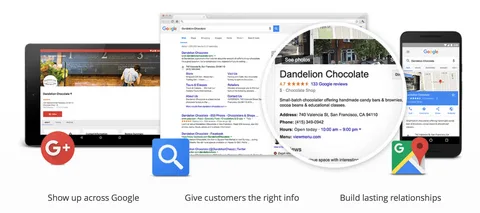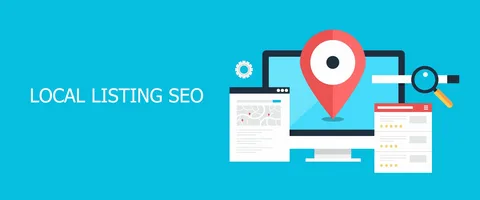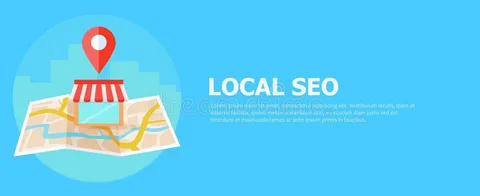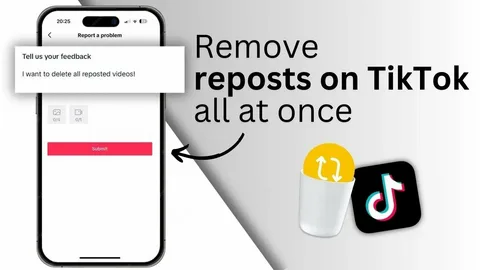How Local Businesses Can Rank in Other Cities Without Violating Google Policies
Expanding a local business to rank in a city without a physical presence can seem challenging, especially when adhering to Google My Business (GMB) and Google Maps policies. While direct listings in another city without a physical address are not allowed, strategic methods can help you extend your reach and build visibility ethically. This blog explores practical ways to rank non-local businesses locally while staying compliant.
Understanding Local SEO
Local SEO is a digital marketing strategy focused on increasing visibility for businesses targeting location-based keywords. These keywords typically have high commercial intent, meaning users are searching with the intention to make a purchase or engage a service.
- High Conversion Rates: Ranking for local keywords often leads to better conversions and revenue.
- The Role of GMB: Google My Business is central to local SEO, but it restricts businesses from ranking outside their registered physical address.
Ranking in another city where your business has no physical presence requires creativity, effort, and adherence to Google’s policies. The key is to focus on long-term strategies that prioritise genuine value for the audience.
Can You Rank in a City Without a Physical Presence?
Short Answer: No, you cannot list your business on GMB or Google Maps for a location where you lack a physical address.
Google’s policies aim to provide accurate and reliable information to users. Fake listings or spammy practices not only violate these policies but can also lead to account suspension. Instead of using unethical methods, businesses should employ legitimate strategies to grow their presence in non-local areas.

Steps to Rank Non-Local Businesses Locally
To ethically rank your business in another city, follow these proven steps:
1. Optimise Your Website
Your website is the foundation of your online presence and can help bridge the gap between your business and the target city.
- Create Location-Specific Pages:
Develop unique pages dedicated to each city you want to target. For example:- “Artisan Crafts in Camden, London”
- “50% Off on Handmade Items in Birmingham City Centre”
- Avoid Content Duplication:
Each page must have unique content. Copy-pasting the same content with minor changes (e.g., swapping city names) can harm your rankings. - Add Localised Images:
Use photos relevant to the targeted area, such as local landmarks or neighbourhoods. Avoid generic stock images that fail to connect with the audience. - Include Detailed Information:
Provide information about products, services, pricing, delivery options, and return policies. This helps users trust your business, even if it’s not physically present in their city.
2. Leverage Local Content
Content that resonates with the local audience can make your business more relatable and trusted.
- Use Regional Variations:
Incorporate content specific to UK regions, such as Scottish traditions or Yorkshire crafts. - Highlight Local Trends:
Write blog posts or articles about local events, festivals, or customer preferences. For example, a fashion store might publish “Top Fashion Trends for Londoners This Summer.”
3. Build a Strong Social Media Presence
Social media platforms are powerful tools for targeting specific locations and engaging local audiences.
- Tag Locations in Posts:
Include location tags and relevant hashtags to increase visibility among people in the target city. - Run Targeted Ads:
Use platforms like Facebook and Instagram to create location-specific ad campaigns. These are often more cost-effective than Google Ads and can generate significant engagement. - Engage Locally:
Interact with followers from the target area by responding to comments and messages promptly. Building relationships with the local community enhances brand trust.
4. Use Service Area Business Listings
Google allows businesses without physical storefronts to create Service Area Business (SAB) listings, which can target specific geographic areas.
- Setup SAB Listings:
Instead of a physical address, list a service area that includes your targeted city. - Understand SAB Limitations:
- Listings can only rank within a 30-35 km radius of the specified service area.
- You’ll need to provide proof of service or delivery in the region, such as delivery receipts or images of completed work.
5. Follow Google My Business Policies
Adhering to GMB policies ensures long-term success and prevents account suspension.
- Avoid Fake Listings:
Do not create false addresses or claim locations where you have no business operations. - Be Transparent About Your Services:
Clearly outline the areas you serve and the type of services/products you provide. - Stay Updated with Policies:
Google’s policies evolve frequently. Regularly review them to ensure compliance.

Benefits of Expanding Your Local Reach
Using the strategies above can provide several advantages for your business:
- Increased Visibility:
Ranking in additional locations allows you to reach more potential customers. - Higher Revenue Opportunities:
With greater visibility comes an increase in sales and inquiries. - Improved Brand Awareness:
Expanding into new cities establishes your brand as a regional or national player.
Common Mistakes to Avoid
While implementing these strategies, steer clear of these common pitfalls:
- Content Duplication:
Repeatedly using the same content across multiple pages can lead to penalties. - Neglecting Reviews:
Customer testimonials and reviews are vital for building credibility in a new area. - Ignoring Local Directories:
Local directories and community websites can boost your visibility, so don’t overlook them.
Conclusion
Ranking a local business in another city without a physical address is challenging but not impossible. By focusing on ethical practices such as website optimisation, localised content creation, and leveraging SAB listings, businesses can successfully expand their reach while adhering to Google’s policies.
Expanding into new areas requires patience and consistent effort, but the rewards—higher visibility, increased revenue, and greater brand awareness—make it well worth the investment.




Post Comment